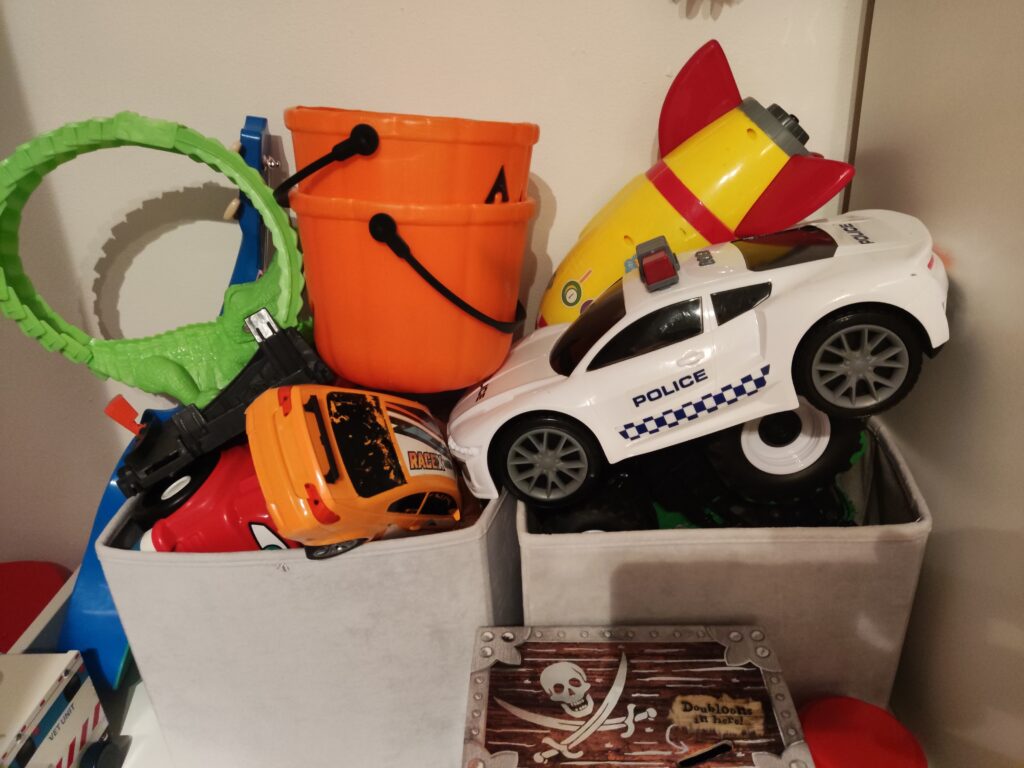If your autistic child is hoarding then this is the article for you. Below we dig into what may be behind the behaviour and what you can do about it.
Autism and hoarding
One of the first things to realise is that this behaviour is actually quite common. Searching forums and speaking to friends with autistic kids showed us that many engage in this activity.
The reasons will vary from one child to another but here are some possible motivations.
Routine
Ahh good old fashioned routine building, something which can account for any number of autistic behaviours.
Specifically when it comes to an autistic child hoarding routines are a logical culprit.
A routine isn’t just eating a meal at a set time or travelling a particular routine to school. A routine could be playing with a particular item or object or simply not disposing of an article most usually would.
Autistic children therefore may hoard as a means of maintaining a sense of comfort and predictability in their daily lives.
Not wanting to let go of something, be it a toy, a shell or even an item of rubbish gives them predicability.
They know how this item moves and feels so why would they want to get rid of it?
Then you have the double barrelled aspect of routine in that the physical act of storing an item can breed repitition.
Stacking items up in a cupboard, in a room or a drawer may provide a predictable satisfaction.
Your child may enjoy the structure of putting items away in their private stash, no matter what it is.
Routine and repetitive behaviours are also linked.
Autistic kids often engage in repetitive behaviours, Hoarding can be another type of repetitive behaviour.
By collecting and organising objects, an autistic child can find comfort and satisfaction in the repetitive nature of the activity.

Communication challenges
Issues with communication are common with autistic children. Speech and understanding language can elude many and this can lead to hoarding.
Take understanding as one factor.
If a child doesn’t understand when their parents explain that they can’t keep everything then hoarding is a natural result.
Also the fact that they don’t always understand that items can be replaced, like stones and balloons then it’s natural for the child to want to retain them.
Regulation
Collecting and organising items can serve as a method for emotional regulation.
This can help an autistic child manage stress or anxiety.
It is not dissimilar to a child lining up toys or objects, it is the sense of organisation which may provide comfort.
Naturally not all autistic children who are hoarding will be doing so in a tidy manner, but some will be meticulous in their behaviour.
Items may be folded, stacked or aligned with perfect symmetry providing that calming emotional regulation.
Social Anxiety
Autistic kids can often struggle with social anxiety, making it difficult for them to interact with others.
Hoarding is a solo endeavour can provide a sense of comfort for an autistic child who feels lonely or isolated.
The objects they hoard can become a source of security and emotional support.
Kids being kids
Depending on what they are hoarding and to what extent, it may be fairly typical behaviour of kids.
I remember as a child I was obsessed with objects like stickers, lego and marbles. I had thousands and I would fight to the death to stop my parents throwing them away.
Yes with autism sometimes behaviours are amplified but don’t rule out the fact that it can be natural behaviour.
How can parents handle an autistic child hoarding
We would never suggest that moving your child away from hoarding will be easy. But after a period of observation to look for triggers, here are some things to try;
Gradual changes
Consider introducing changes slowly, allowing your child time to adapt. Sudden alterations may be distressing, so gradual transitions are often more successful.
Try for example removing one article at a time from their hoard. This gradual rebalancing may prevent anxiety and meltdowns.
Provide alternatives
Try to provide acceptable alternatives for comfort or self-regulation.
These could include options such as a designated space for certain activities or specific items they can collect within defined limits.
Other alternatives which scratch the itch of order and predicability could be toys like building blocks.
Encourage your child to explore building complex structures. They may find the puzzle of building a suitable replacement for hoarding.
Provide praise
Try to acknowledge and reinforce positive behaviours. Encouraging and praising your child for using alternative strategies can be effective.
For example where you think they may want to hoard something but instead they opt to throw it away, make sure you give them praise and reassurance.
Make throwing things away fun
If it is a case that your child is hoarding items which should be for the bin/trash then try and make that fun.
Simple additions like a basketball hoop over a bin can make it an enjoyable activity throwing items away.
Or you could give a sticker or simple reward every time your child disposed of something appropriately.
Summary – Is your autistic child hoarding?
Hoarding behaviour in autistic children is often a coping mechanism, providing comfort and stability in a world that can be overwhelming.
Parents can support their child by creating a structured environment and introducing changes gradually.
As we all should remember, each child is unique, so tailoring strategies to their specific needs is key to addressing this challenging behaviour.
Good luck
Any tips or ideas?
We would love to hear from you if you have got any techniques or ideas for our readers to try.
Be sure to leave a comment if any of the above has helped or if you have any ideas we can add to this article.
Also be sure to search for any other articles you might find helpful.
Try for example searching below for topics like ‘meltdown’ or ‘communication’.

